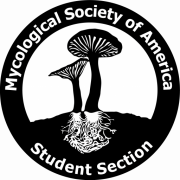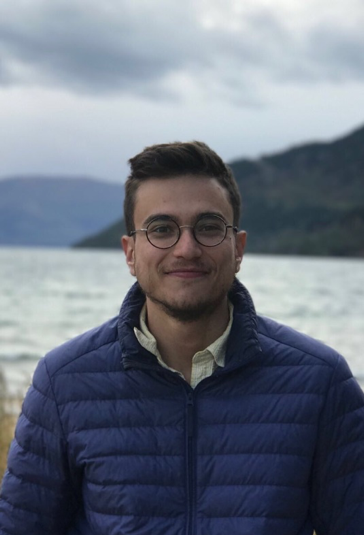A native of Montreal, Emile Gluck-Thaler is a PhD candidate at The Ohio State University in Dr. Jason C. Slot’s lab. Emile is interested in the genetics of fungal ecology. Fungal lifestyles are notoriously difficult to pin down, and often, a single species will be associated with multiple ecological roles. For example, some fungi can shift between decomposer, pathogen and mutualist within a single round of their lifecycle. This high degree of phenotypic plasticity is a really important part of how fungi evolve and interact with other organisms, and Emile wants to learn more about how they do it. Right now, he is researching the phenomenon of gene clustering, where genes involved in the same metabolic pathway are positioned next to one another on fungal chromosomes, in order to better understand how fungal ecology and metabolism are reflected in the organization of genes in genomes. Emile writes computer programs and builds phylogenetic trees to identify new types of gene clusters and to study the evolutionary processes leading to their assembly, distribution and degradation. His ultimate objective is to link gene clusters with metabolic pathways that help fungi adapt to particular niches. After completing his PhD, Emile plans to post-doc before finding a research position at a university. He plans to ultimately find or make a job where he can continue learning, thinking, and writing about fungi.

What is your favorite fungus and why?
Difficult question, but it has to Septbasidium apiculatum. This species, along with many others in its genus, weaves dense mycelial mats that shelter sap-sucking insects on the surfaces of some plants. These fungi then parasitize some of the insects, holding them in place and using them as a living straw to suck nutrients out of the plant! This is just a wonderful example of how fungi co-opt other organisms while adapting to their environment.
What is your favorite fact/thing about fungi?
Fungi are about as close as you can get to studying alien life without having to leave Earth. Because their body plan is essentially a modular network, they challenge our preconceptions of individuality that are based on traditional animal and plant paradigms. This never ceases to blow my mind.
What do you like to do in your free time? What are your hobbies?
Foodwise, I’m really into making kimchi, and have lately been trying to go beyond cabbage and ferment all kinds of different veggies. I love to hike, but tend to slow everyone else down, as I can get a little obsessive about finding the right angle to photograph the fungi I come across. I also am an avid boardgamer.
Anything else you’d like to talk about?
One of my goals over the next few years is to make a board game about fungi. Board games are a great way to get people engaged with subjects that they wouldn’t otherwise care about, and I think that even a very basic game based on the fundamentals of fungal biology and ecology would go a long way to help familiarize people with fungi.


Leave a Reply